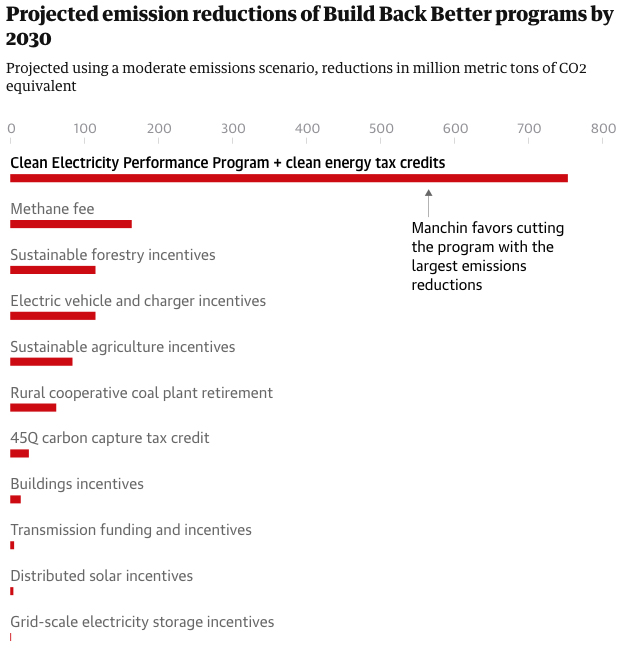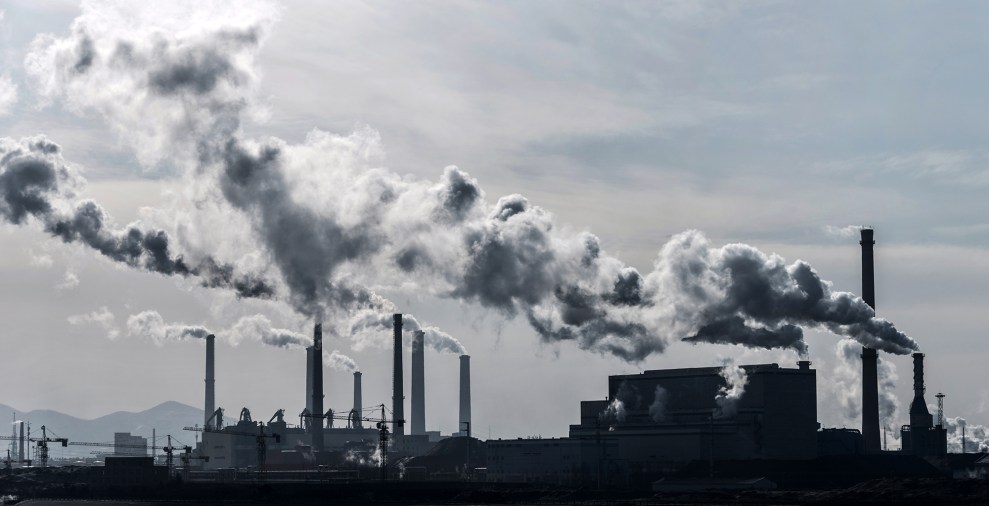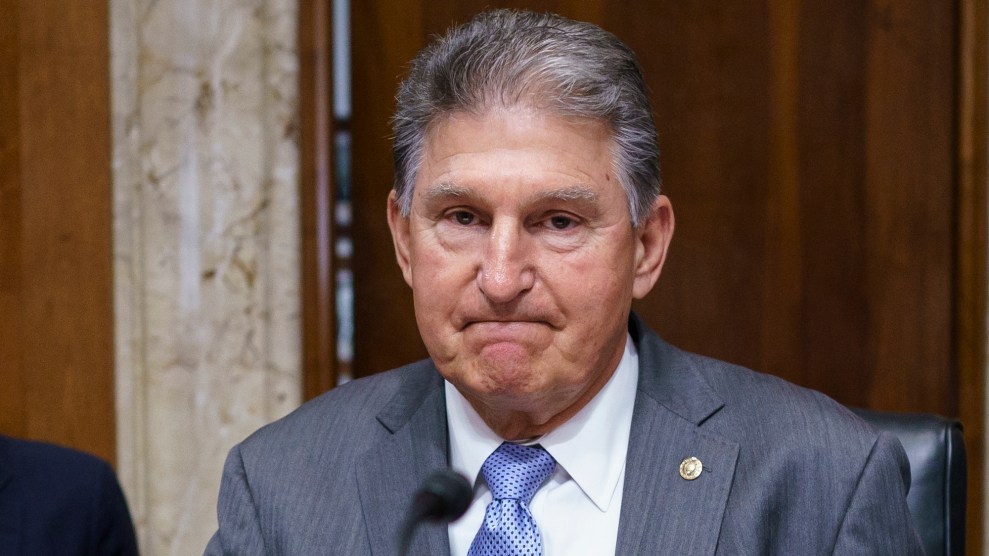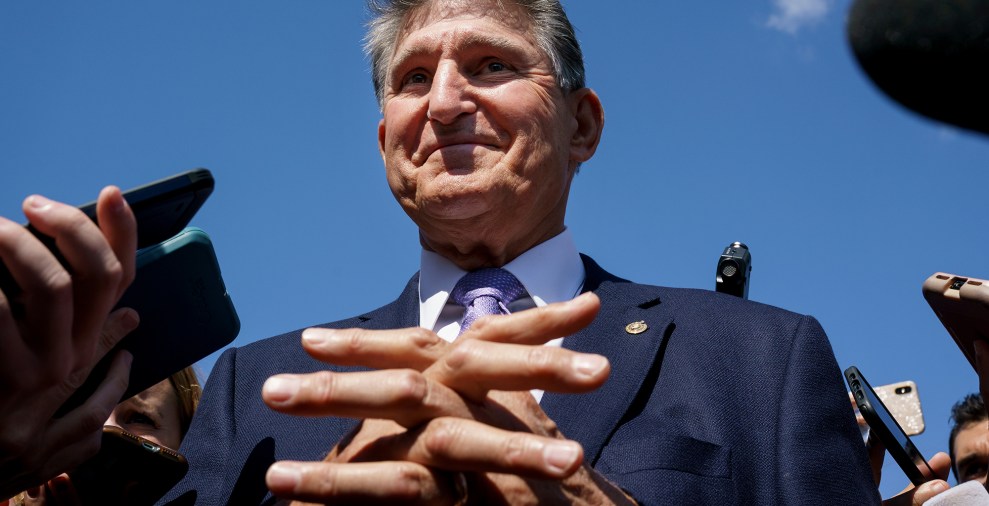
Sen. Joe Manchin discusses his budget agenda with reporters on Capitol Hill, September 30, 2021.J Scott Applewhite/AP
This story was originally published by the Guardian and is reproduced here as part of the Climate Desk collaboration.
In the tumult of negotiations over the most consequential climate legislation ever proposed in the US, there is growing scrutiny of the fossil fuel industry connections of the man poised to tear down the core of the bill—the West Virginia senator Joe Manchin.
Manchin, a centrist Democrat, has objected to key provisions of a multitrillion-dollar reconciliation bill that would slash planet-heating emissions and help the US, and the world, to avert catastrophic climate breakdown. In a finely balanced Senate, Democrats need all 50 of their senators to vote for the bill, with no Republicans willing to vote for the climate measures.
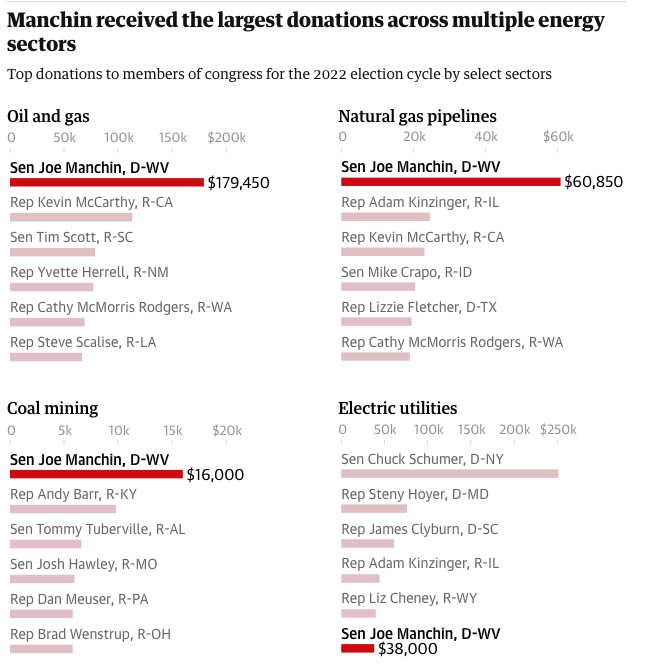
The legislation would steadily retire the coal industry that once formed the backbone of the West Virginia economy and continues to provide ample financial support to Manchin, who has spent the past four decades as a political heavyweight in his Appalachian home state, including acting as its secretary of state, governor and now US senator.
In the current electoral cycle, Manchin has received more in political donations from the oil and gas industry than any other senator, more than double the second largest recipient. He is also the No 1 beneficiary of donations from the coal mining sector, leads the way in money accepted from gas pipeline operators, and is sixth in the ranking of senatorial donations from electricity utilities.
This industry largesse has led to accusations that the senator has been unduly influenced by the companies that have helped stoke the climate crisis. Manchin’s office did not respond to a request for comment.
But Manchin’s ties to the fossil fuel industry run deeper than political donations. After initially working in his family’s furniture and carpet business, Manchin set up a coal brokerage firm called Enersystems in 1988, running it until he became a full-time politician.
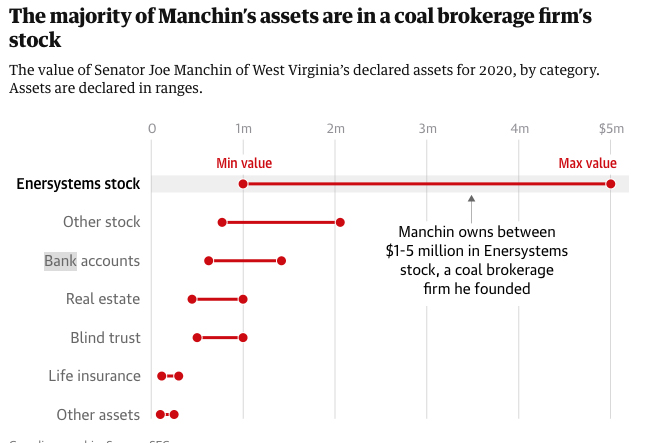
Despite handing control of Enersystems to his son Joseph, Manchin’s links to the business have proved fruitful to the senator. His shares in Enersystems are worth between $1 million and $5 million, according to his latest financial disclosure document, with the senator receiving more than $5 million in dividend income from the company over the past decade. The coal brokerage represents 71 percent of Manchin’s investment income, and about a third of his total net worth.
